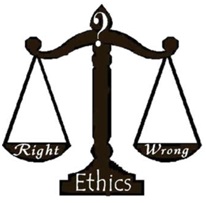|
 |
|
 |
St. Thomas Aquinas - Philosophy, Learning and Ethics
St. Thomas Aquinas (1225-74)
Italian philosopher (pictured right) who introduced Aristotle’s (pictured right below) work into Christianity. His philosophy is called Thomism. His most famous book is... Summa Theologica (Summary of Theology), written 1265-74.
What did he say about learning and ethics?
1. Learn from your experience and intellect Everything you learn comes firstly from:
Then your mind (or intellect)
This is called abstraction. General rules, or laws, are particularly important in science. Your salvation depends on knowledge of what you believe, desire and do.
2. Reason explains religion Reason (the critical analysis and questioning of relevant facts) can help you understand God. But belief in God can explain things that you can’t understand. God (pictured right in Michelangelo's painting in the Sistine Chapel) exists because someone must have:
Obeying and loving God shouldn’t stop you learning as much as possible. “Beware the man of one book”, Thomas said.
A quote from Psalm 4 in the Bible is very important to him: “The light of your face, Lord, is stamped on us”. This means that you must do what God wants but your intellectual reasoning isn't enough to do this. You must also:
3. Question your ideas He always questioned the truth of his ideas by discussing three of the strongest arguments against it.
4. Do good and avoid evil
Important are:
a) action Knowing what is good is useless, if you don’t do it. b) duty (what you should believe, desire and do).
c) virtues Plato’s virtues (prudence, temperance or moderation, justice or fairness, and courage) Christian virtues (faith, hope and love). You must live by these virtues.
d) not being bad You shouldn’t do anything bad, even if you have good intentions. So even white lies are out!
5. Enjoy yourself and relax Music, in particular, makes you happy. “Good sleep, a bath and a glass of wine” will reduce your worries!
6. The “just war” War is only justified if three things happen:
7. A “just price” Prices should be fair balancing the interests of:
Key quotes on ethics Three things are necessary for the salvation of man: to know what he ought to believe; to know what he ought to desire; and to know what he ought to do. One cannot use an evil action with reference to a good intention. Evil denotes the absence of good.
Key quotes on happiness Happiness is secured through virtue. The things that we love tell us what we are.
Key quote on leadership If the highest aim of a captain were to preserve his ship, he would keep it in port forever.
Key quote on God and religion To one who has faith, no explanation is necessary. To one without faith, no explanation is possible.
Key quote on learning and motivation All human beings by nature desire to know. |
|
|
||
|
|
|
||
|
||
| Copyright © wisdomtowin.com All Rights Reserved | ||
|






